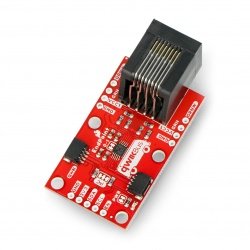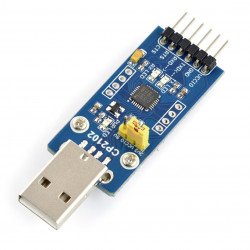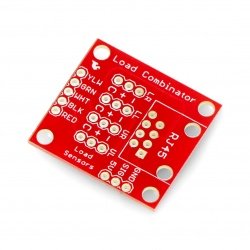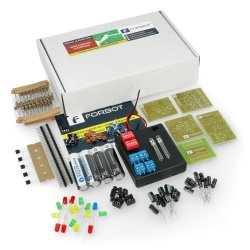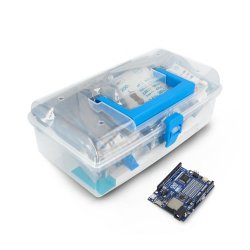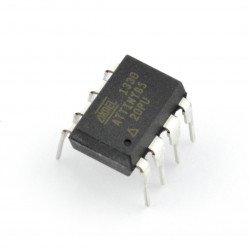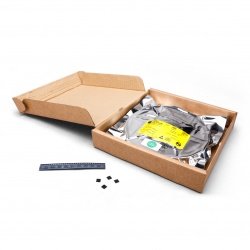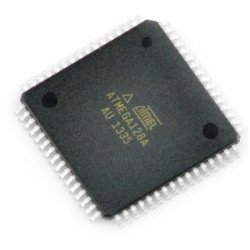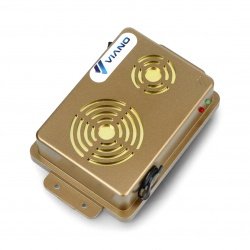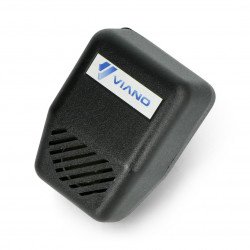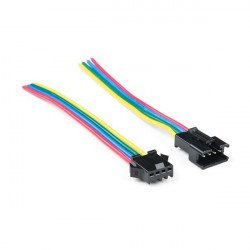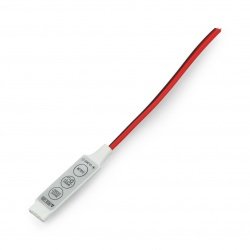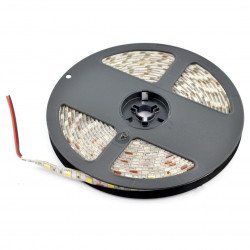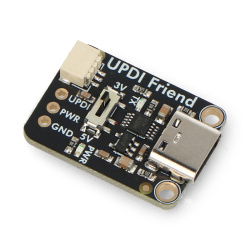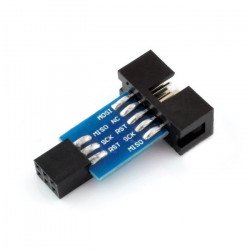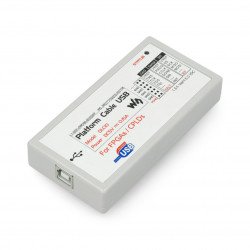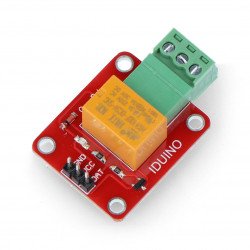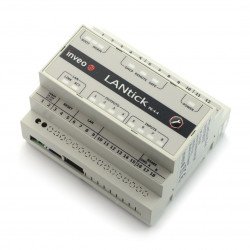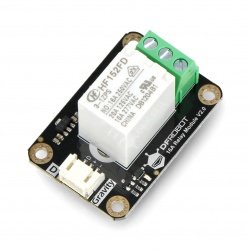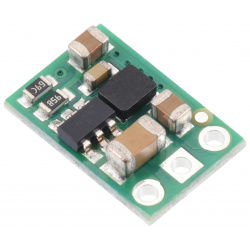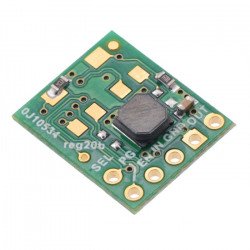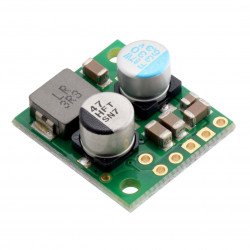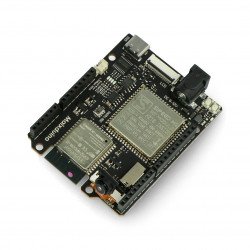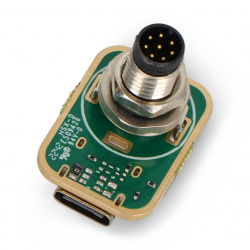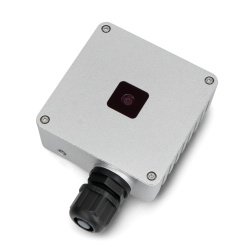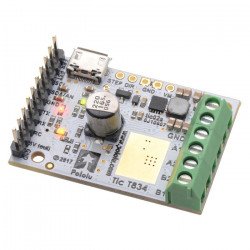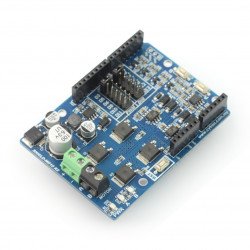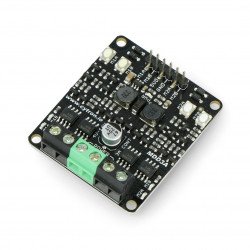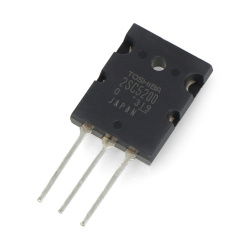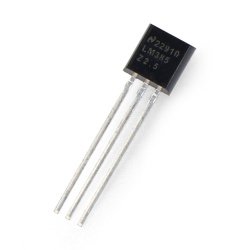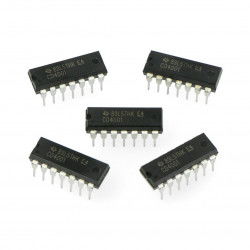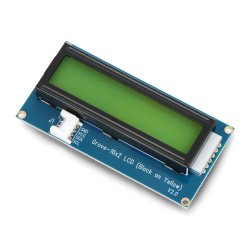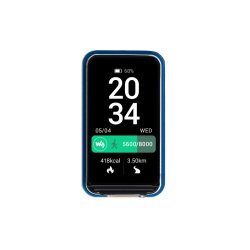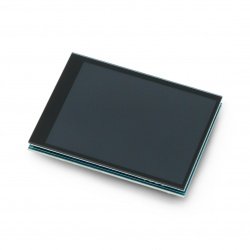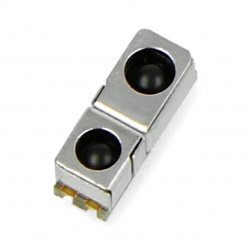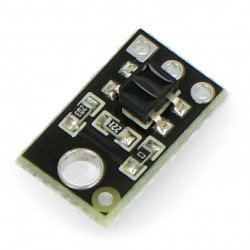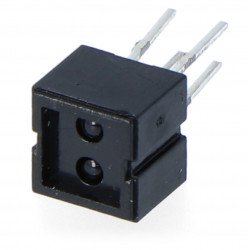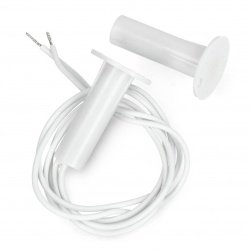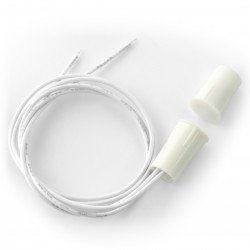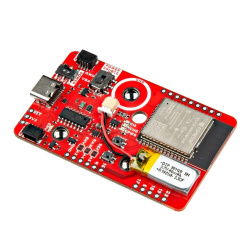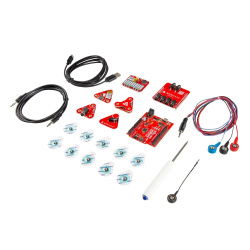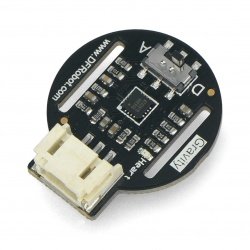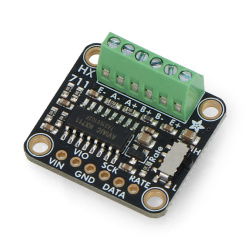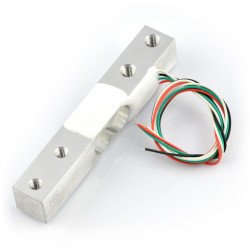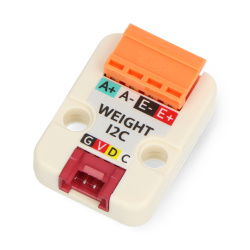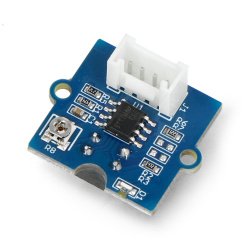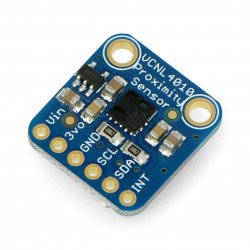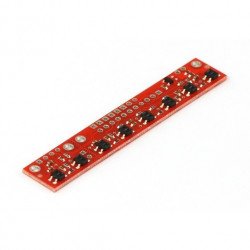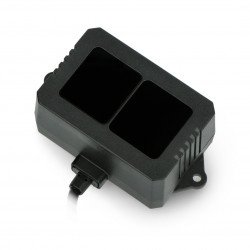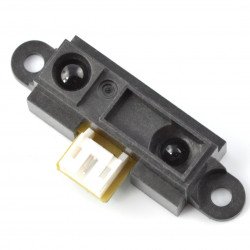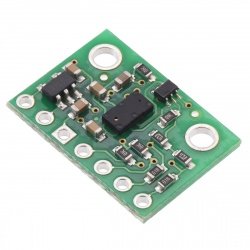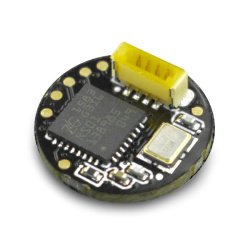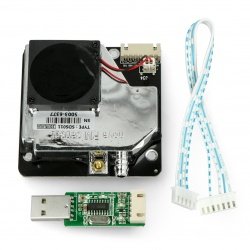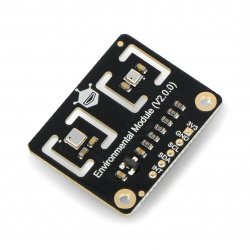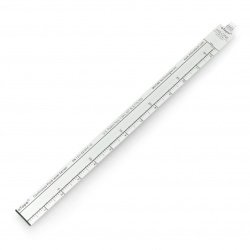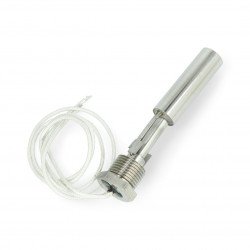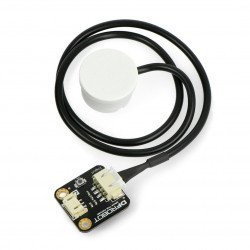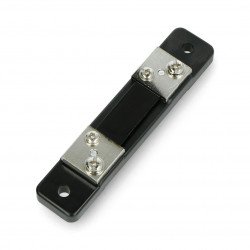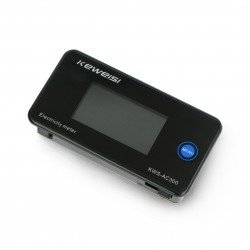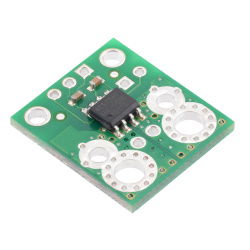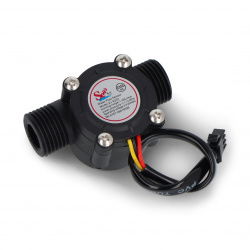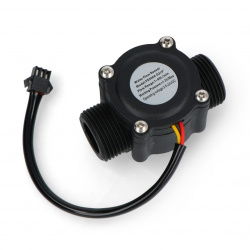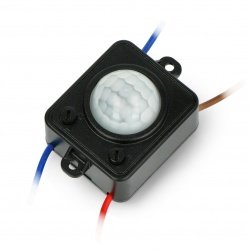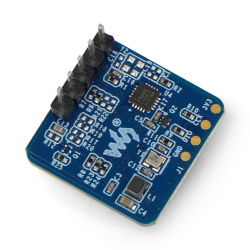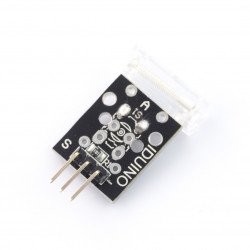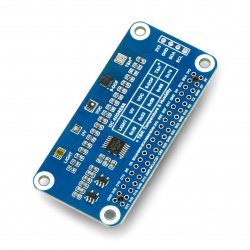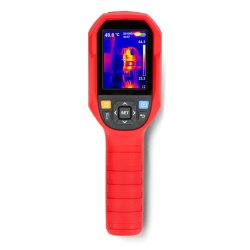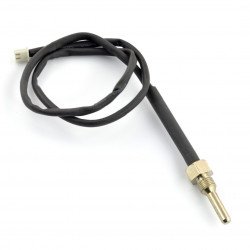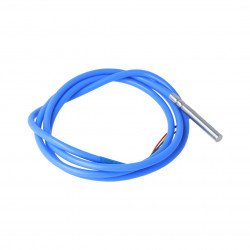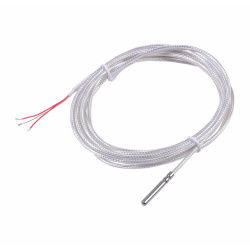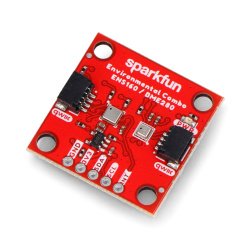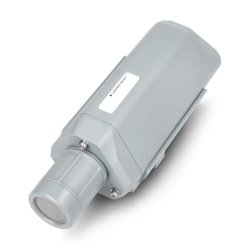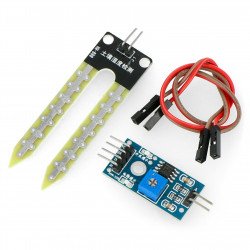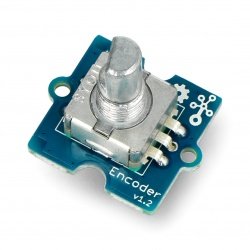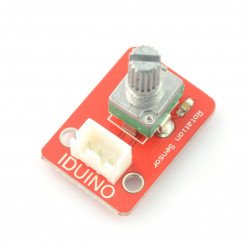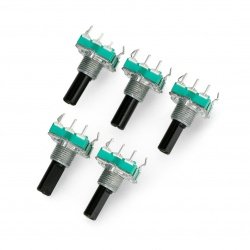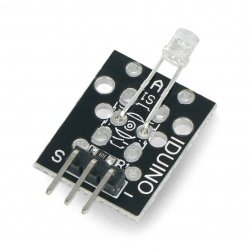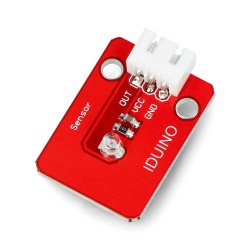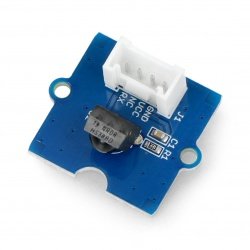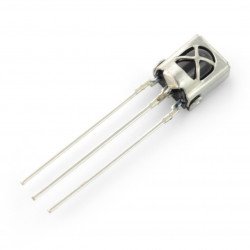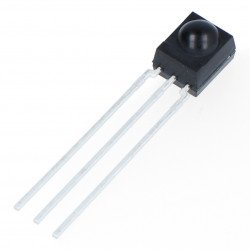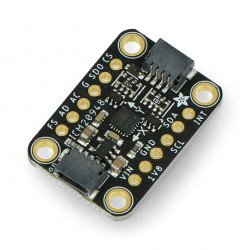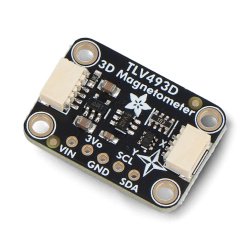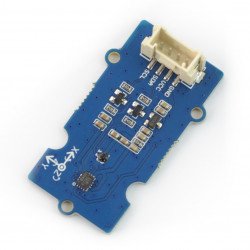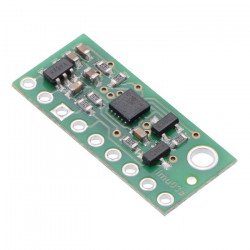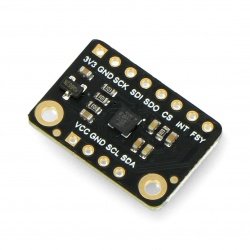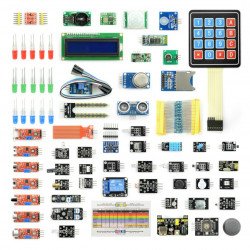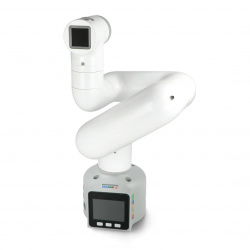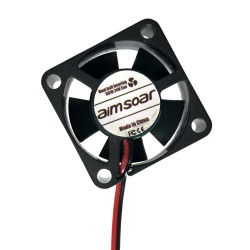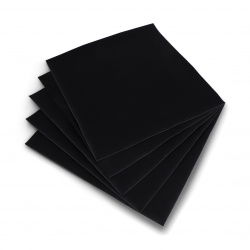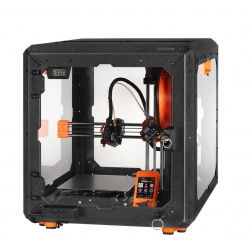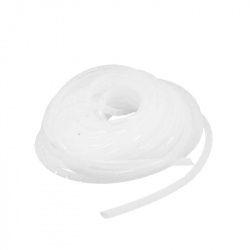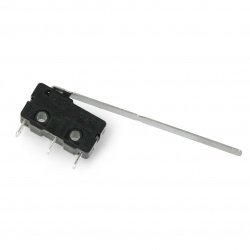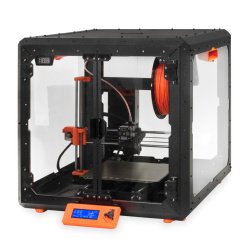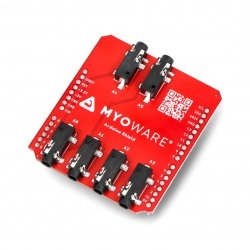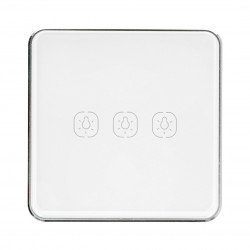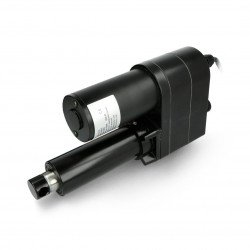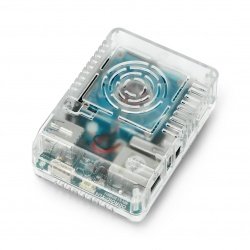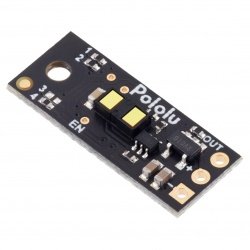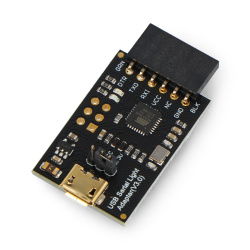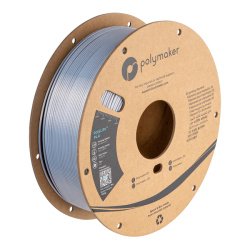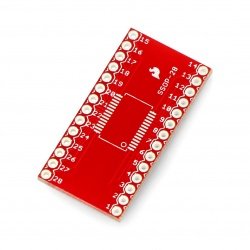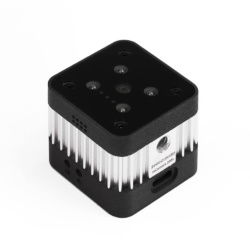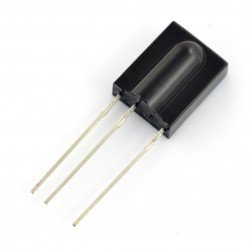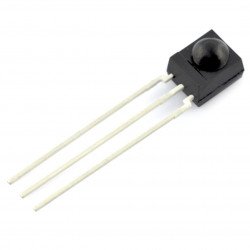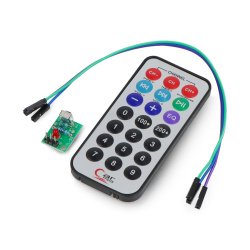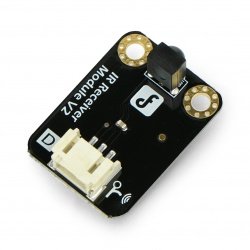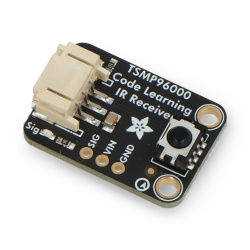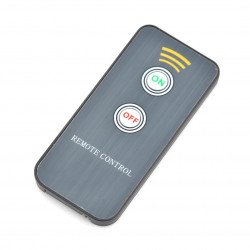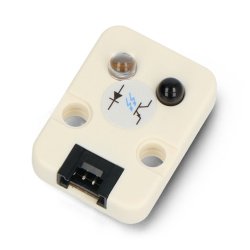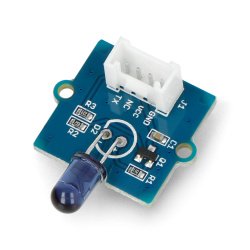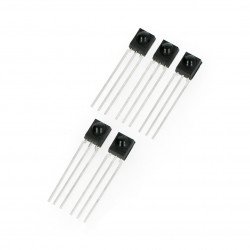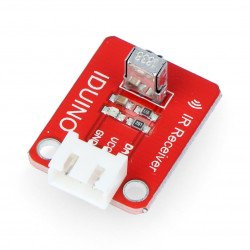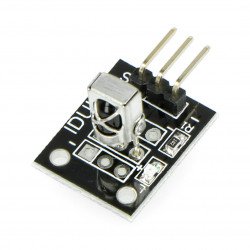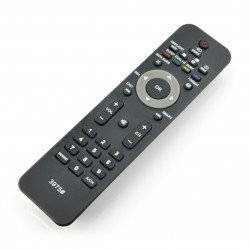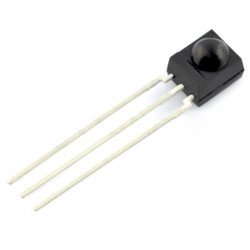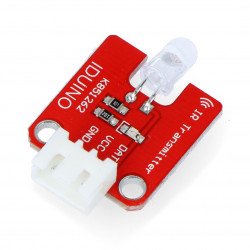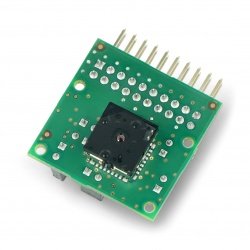Infrared technology is as old as the world. In fact, it is literally so because infrared waves reach us from the sun. When it comes to technology, infrared waves can be found, for example, in TV remote controls, not the current ones, but those produced many decades ago. Currently, infrared technology is much more modern.
IR receivers
Infrared receiver TSOP31236 - 36kHz
TSOP31236 infrared receiver, operating at 36 kHz with a voltage from 2.7 V to 5.5 V.Infrared receiver TSOP2236 - 36 kHz
IR receiver TSOP2236, it is operating at a frequency of 36 kHz with a voltage from 4.5 V to 5.5 V.DFRobot Gravity - IR receiver 38kHz
The IR receiver from the Gravity series, operating at a frequency of 38 kHz with a voltage of 5 V. The module allows to receive commands from the IR transmitter. The...TSMP96000 Code Learning - IR 20-60kHz receiver - STEMMA JST PH 2mm - Adafruit 5970
The TSMP96000 module from Adafruit is an IR receiver that supports a signal frequency range of 20 kHz to 60 kHz , making it compatible with various IR remotes, even in cases...Velleman VMA317 - 37,9kHz infrared receiver - 2 pcs.
Infrared receiver module operating at 37.9 kHz . Set includes 2 receivers.- Reduced price
- SPECIAL OFFERS
Refletive IR - infrared receiver with LM393 comparator - Unit extension module - M5Stack U175
Reflective IR Unit is an infrared sensor module that effectively and precisely detects reflected infrared light from target objects. It is ideal for applications such as...Grove - IR receiver 38kHz 940nm
IR receiver from Grove , operating at a frequency of 38 kHz with a supply voltage from 3.3 V to 5.0 V. Maximum sensitivity is observed for the wave length of 940 nm.Infrared receiver TSOP4836 - 36kHz - 5 pcs.
IR receiver TSOP4836, it is operating at a frequency of 36 kHz with a voltage from 4.5 V to 5.5 V.IR receiver + wire - Iduino SE027
Simple Iduino module with IR receiver, operating at a frequency of 38 kHz. The module is powered with the voltage of 5 V. It detects a beam at an angle of 90°. Maximum...Infrared receiver module 1838 - 38kHz - Iduino ST1089
Module with IR receiver, operating at a frequency of 38 kHz. The module is powered with the voltage from 2.7 V to 5.5 V. It detects an angle of up to 90 °. Maximum detection...Universal remote control - RC5 encoding - 3975
A universal remote control for Philips audio and video equipment. It can simultaneously control devices such as TV set, satellite receiver, amplifier, DVD player or VCR. The...Infrared receiver TSOP32156 - 56 kHz
IR receiver TSOP32156, it is operating at a frequency of 56 kHz.IR 940nm transmitter + wire - Iduino SE028
IR transmitter Iduino emitting light with a wavelength of 940 nm. Works with voltage of 5 V. The kit includes a cable 3-pin.Infrared receiver TSOP4838 - 38kHz
IR receiver TSOP4838, it is operating at a frequency of 38 kHz.Thermal imaging camera - FLiR Lepton Dev Kit V2 - SparkFun KIT-15948
A set containing the Flir Lepton V2 thermal imaging camera , and a board to facilitate its connection. The Lepton LWIR radiometric module used in the device has a resolution...- Discontinued product
See also
- Oxygen sensors
- Optical sensors
- Resistance sensors
- Door sensors
- Piezoelectric sensors
- RPM sensors
- Twilight sensors
- Tilt sensors
- Accelerometers
- Inductive sensors
- Hall effect sensors
- Alarm sensors
- 9DoF IMU sensors
- Pressure sensors
- Air quality sensors
- Sound sensors
- Gesture sensors
- Limit switches
- Sensors of light and color
- Gas sensors
- Magnetic sensors
- Medical sensors
- Pressure sensors
- Sensors odbiciowe
- Distance sensors
- Inductive contactless sensors
- Weather sensors
- Liquid level sensors
- Current sensors
- Flow sensors
- Motion sensors
- Temperature sensors
- PT100 temperature probes
- Humidity sensors
- Fingerprint readers
- Encoders
- Photoresistors
- Phototransistors
- Magnetometers
- Gyros
- Sensor sets
- Grove modules
- Gravity modules
How does infrared communication work?
Infrared radiation, to put it simply, is light that is invisible directly to the human eye and therefore works well in wireless communication. Sources of infrared radiation are present among us in many places. Sunlight, electric lighting and any objects that emit heat also make up the infrared radiation spectrum. How was the problem of interference-free communication between devices equipped with an infrared module solved among such a large number of infrared sources? When you press a button on the TV remote control to, for example, change the volume or the broadcast program, the infrared LED built into the remote control (IR sensor) flashes at a frequency of 38kHz (this is the most common frequency in IR devices, but other frequencies are also found, e.g. 36kHz or 56kHz) to send encoded information to the IR receiver built into the TV. In order for the signal transmitted to the infrared receiver to be received correctly, it must be modulated. Using this process, the sent signal is given an appropriate time course shape, thanks to which it is correctly recognized and decoded in order to change the parameter depending on the button pressed on the remote control.
Wide possibilities of cooperation with a mobile phone and Arduino
The standard in most modern touch phones is a built-in infrared sensor that detects the temperature of the human body and controls the display on and off during voice calls. Using the infrared connector to your phone, you can pair your phone with the infrared module, giving you many options for controlling external objects. Then, from your phone, you can manage the operating parameters of air conditioning devices, control the blinds of doors and windows, and even use your phone as a game console. Connecting the IR sensor to Arduino will allow you to build, among others: a robot with the function of detecting obstacles in its movement path, as well as an intelligent lighting control system in the room. Choose the right infrared sensor for your project.
Infrared receivers - FAQ
An IR receiver (infrared receiver) is an electronic element that enables the reception of a signal transmitted using electromagnetic radiation waves in the infrared band.
The infrared receiver is used to receive signals from IR transmitters. They are used, for example, in remote controls for electronics and household appliances, robots and electronic equipment.
It is best to do this by connecting the receiver according to the diagram and sending a signal from the diode to it, and then reading the changes in the output signal with a meter .
The simplest way is to look at the IR diode through the smartphone's camera, which records infrared radiation - the working diode will glow in its lens.






















































































